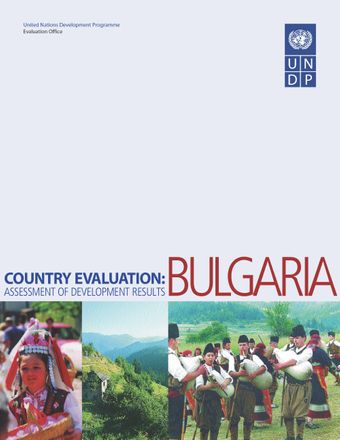Executive summary

- Author: United Nations Development Programme
- Main Title: Assessment of Development Results - Bulgaria , pp 1-6
- Publication Date: December 2006
- DOI: https://doi.org/10.18356/20ec2379-en
- Language: English
Since the 1996-97 political and economic crises, a time during which 36 percent of Bulgaria’s population numbering eight million was considered poor, the country has made substantial progress towards political and macroeconomic stability. Basic democratic freedoms are in place, the parliament operates in a democratic fashion, and independent and critical media exist. Also, public finances were brought under control and economic growth resumed—important steps along the way to the ultimate goals of improved living standards and accession to the European Union (EU). Current fore casts predict that Bulgaria’s real gross domestic product (GDP) will grow by approximately 5 percent per annum over the next four years and that its GDP per capita will expand by approximately 6 percent annually. Bulgaria’s internal accounts are projected to be roughly in balance and its external indebtedness is projected to continue its decline.
-
From This Site
/content/books/9789210599702c002dcterms_title,dcterms_subject,pub_keyword-contentType:Journal -contentType:Contributor -contentType:Concept -contentType:Institution105



